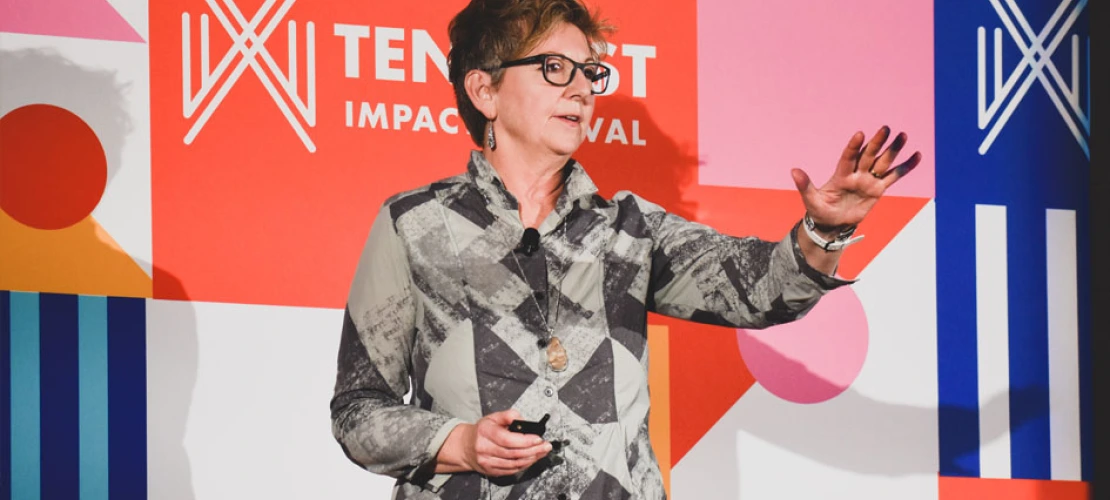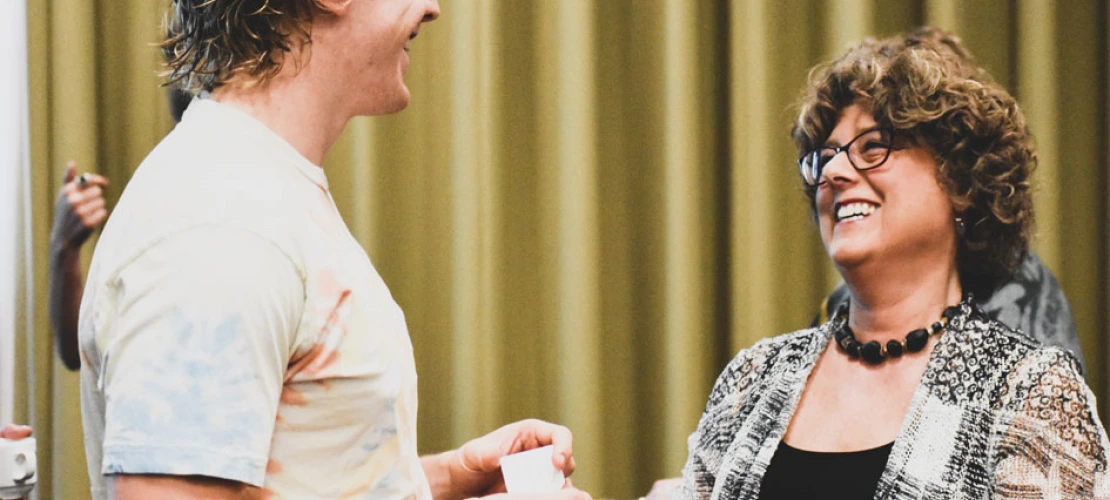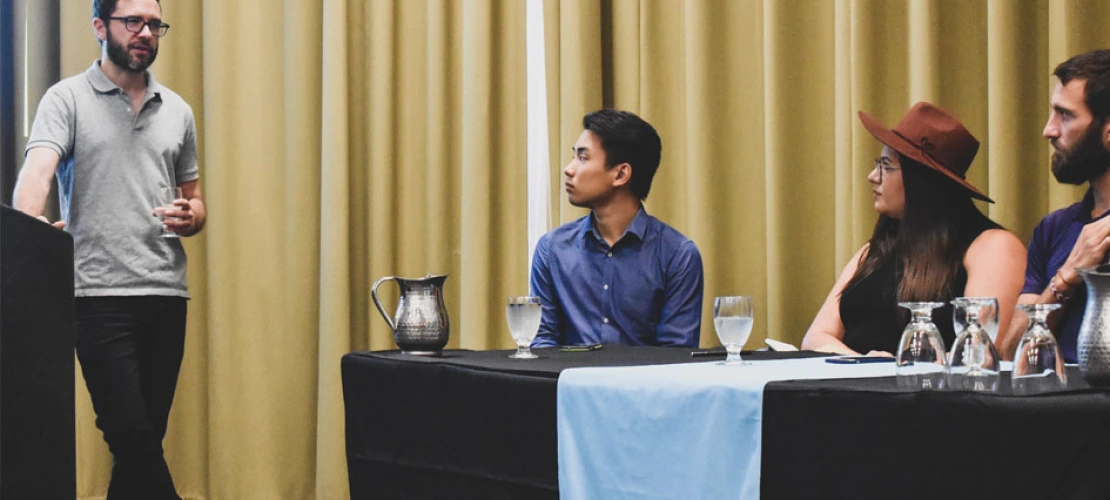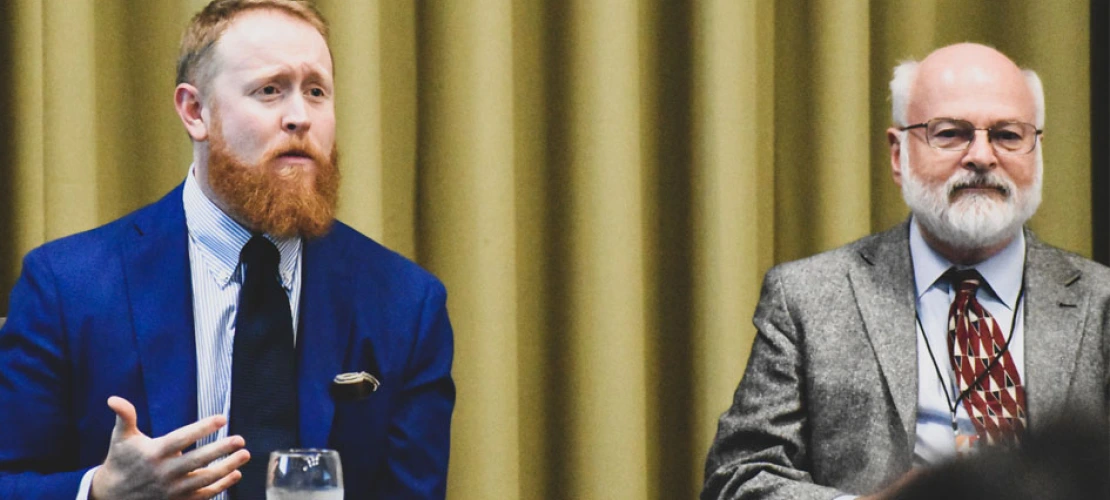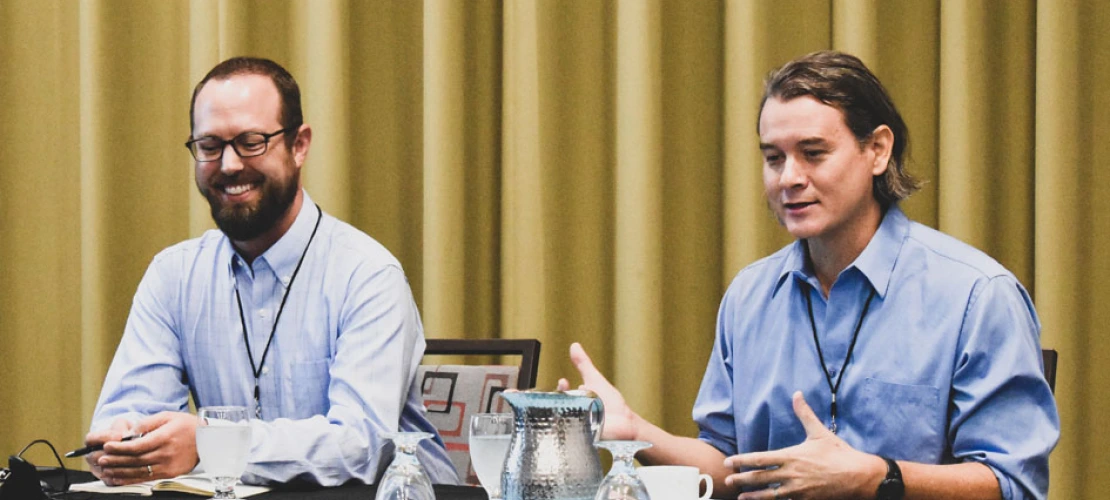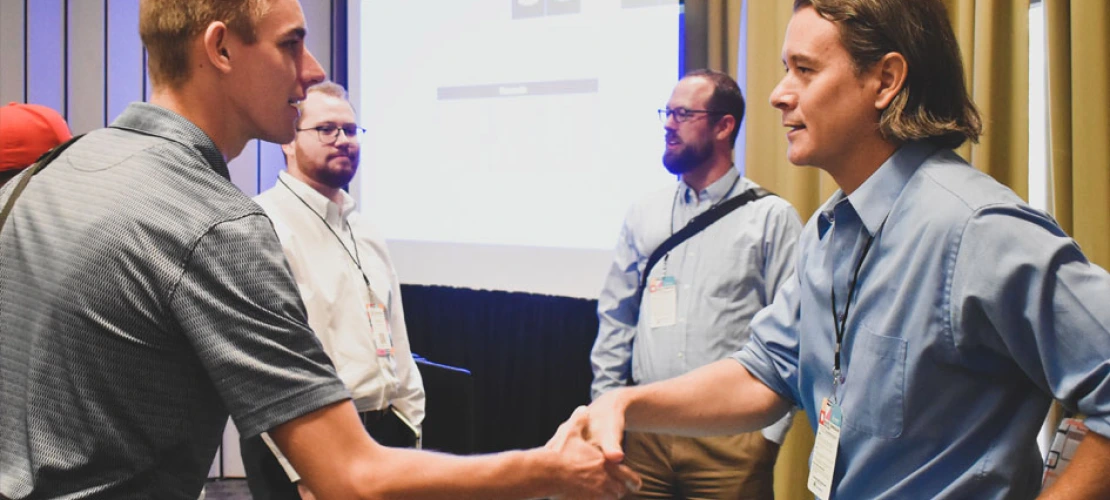CAPLA Faculty Make an Impact at TENWEST
Tucson’s TENWEST Impact Festival featured speakers, exhibitors, and entertainers from the Tucson community and beyond.

Throughout the 10-day event, innovators, inventors, researchers, and entrepreneurs shared their ideas and insights with diverse audiences across a number of notable Tucson venues.
As a title sponsor, The University of Arizona had a strong presence throughout the festival. October 18, 4th Industrial Revolution and You day, featured a number of lectures from CAPLA faculty and a closing address from Dean Nancy Pollock-Ellwand.
Creating Spaces for Healthy Aging: Measuring Health, Wellbeing & Performance Non-Invasively: From Molecules to Environment
Esther Sternberg, Andrew Weil Inaugural Chair for Research in Integrative Medicine, Andrew Weil Center for Integrative Medicine
Place shapes behaviors important for health, especially healthy aging. Sternberg described features of the built environment which promote physical health and emotional wellbeing, with a focus on aging populations. Her presentation revealed evidence drawn from research in many domains on how elements of the built environment—such as light, sounds, and physical layout—can help maintain health, enhance physical activity, reduce stress, reduce falls, improve moods, and even act as memory aids to those whose memory is failing. She shared how wearable health and real-time environmental sensors are helping the elderly extend independence while aging in place.
Robotics and Construction Automation
Brian Ringley, Senior Researcher at WeWork, Visiting Assistant Professor, Pratt GAUD
A number of fascinating new construction robotics startups are entering our industry as venture capital flows to AECO and robotics hardware costs drop sharply. Ringley’s talk began by questioning several key concepts in robotics (e.g. automation vs. augmentation, the myth of mass customization, robotics' impact on contracts/building trades) before moving into job-site performance of common robotic locomotion and sensing paradigms.
He spoke about specific applications such as brick-laying and large scale additive manufacturing before concluding with the greatest challenges of successfully integrating robotics into construction: parallel reality capture and prefabrication efforts, indoor localization and tolerance, LIDAR mapping vs. survey scanning, effective demonstration of ROI, and the commercializability of robotic technology.
Ringley was joined by a panel of B.Arch students who asked about this emerging technology and how it will affect their future careers, and what they can do to prepare for a changing industry.
4IR Disruption in the Real Estate Market
Chris Nelson, Professor of Urban Planning and Real Estate Development
Drew Sanderford, Associate Professor of Real Estate Development and Planning
Johnny Hanna, CEO and CO-Founder of Homie
The Fourth Industrial Revolution (4IR) doesn’t just impact phones, factories, and fuels. The disruptive changes to the way we work, travel, and access information will have a deep impact on real estate markets as well. Johnny Hanna, an innovator in the real estate industry, joined Chris Nelson and Drew Sanderford who introduced attendees to the future of real estate by demonstrating how it will be profoundly influenced by autonomous vehicles, property technology, and sustainable processes.
Podcast, Cli-Fi, and Science Storytelling for Climate Action in the Built Environment
Ladd Keith, Assistant Professor, Planning
Doug Parsons, Director, America Adapts Media
Amy Brady, Editor-in-Chief at Chicago Review of Books & Burning Worlds Columnist
"Given the urgency of the climate crisis and need for climate mitigation and adaptation in the built environment," the panelists argue, "we must consider multiple ways of communicating climate change to engage everyone." During their discussion, Keith, Brady, and Parsons described ways to give narrative shape to the climate crisis to reach decision-makers of the built environment, consumers of cli-fi (climate fiction) novels and films, and podcast listeners of climate adaptation stories. Attendees learned about the ways in which these climate crisis narratives meet and differ, how to navigate hope versus despair through storytelling, and effective climate communication techniques for climate action that will shape the built environment of the future.
Closing Reception: Linking The Past to The Future: Will Yesterday Be Important for The 4th Industrial Revolution?
Nancy Pollock-Ellwand, Dean, CAPLA
As we embrace the virtual, the digital, the autonomous, Nancy Pollock-Ellwand wonders about the role of places we universally cherish in a world of constant change and movement. Are there lessons and a legacy to be found for the 4th Industrial Revolution in the array of landscapes, buildings and monuments that constitute our World Heritage? Pollock-Ellwand provided her perspective as Co-chair of the evaluation panel on new World Heritage sites inscribed by UNESCO; and as a heritage expert advising different state parties on the potential of new nominations to the World Heritage list. Her presentation explored the unending human drive for innovation, and our genius for adaptation.

